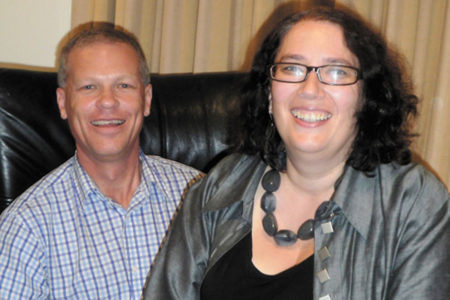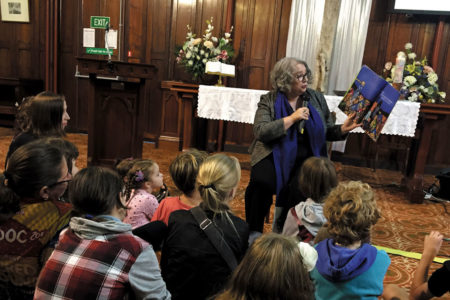One of the most constant sources of comfort, encouragement and challenge in my prayer life over the last few years has been blessings written by Jan Richardson. As I have journeyed through Lent and begun to reflect on Easter I have turned once again to Jan to guide and shelter me.
One meaning of the word blessing is the favour of God. When we are blessed we encounter the mystery of God’s love, justice and mercy poured out. If we open ourselves up to the blessing and the source of the blessing we are drawn into the heart of the One who blesses.
We also talk of blessing as worship to God, a turning back to the giver of the gift in love and praise. Blessings are also something we bestow on others as prayer that they too might be drawn more deeply into the mystery of God who blesses the world over and over.
Some dictionary definitions suggest because a blessing is the favour of God it leads to happiness.
This is to misunderstand God’s blessing. As Jan Richardson says “the most profound blessings we will ever know are those that meet us in the place of our deepest loss and inspire us to choose to live again”.
I offer you three snippets from Jan’s blessings and my reflections on them with hope that you might find blessing for the journey of faith.
BELOVED IS WHERE YOU BEGIN
If you would enter
into the wilderness,
do not begin
without a blessing.
Do not leave
without hearing who you are:
Beloved,
named by the One
who has travelled this path before you.
This blessing, written for the first Sunday of Lent, reminds us as we journey as people of faith we are beloved of God. Before we turn to God, God has already turned to us and called us beloved. Before we trod the path of faith Jesus trod it and called us beloved.
We do nothing to earn this love, it is a gift of grace. Nothing can happen that separates us from God’s love no matter how hard or long the wilderness. But nothing can take away the blessing of being beloved.
The story of God from end to beginning and beginning to end echoes this deep truth: all of creation and each one of us is beloved.
STILL
This day
let all
stand still
in silence,
in sorrow.
Sun and moon
be still.
Earth
be still……
…Let the ground
gape in stunned
lamentation.
Grief, loss and death so often leave us stunned and inarticulate. In the face of a life ending we are often unable to put words to the deep, body-shattering grief. It pierces our hearts.
This blessing reminds us that the death of the Word, who called creation into being, has Earth-shattering and Earth-silencing consequences. The creation is called to silence in the face of Jesus’ death. The call to the whole Earth to stand still in the face of Jesus’ death reminds us that the blessing of God is for all creation. In the face of the death of the Saviour of Creation all of Earth laments. The death of Jesus not only overcomes the alienation between God and humanity, it also promises healing for the Earth. It invites us to receive the blessings of creation and to be agents of blessings for the Earth.
THE MAGDALENE’S BLESSING
All you need to remember
is how it sounded
when you stood
in the place of death
and heard the living
call your name.
Grief-stricken Mary Magdalene hears her name called and in that intimate moment of having one’s name spoken she begins to move from mourning to joy, death to life, despair to hope.
The joy of Easter Day is not that death, suffering, sin and injustice are forgotten. Rather it is that the Crucified One calls us to life, in the midst of these things.
Life comes when our name is called by the One who loved us even unto the grave. We know that all the forces of death and destruction will not overcome us because God’s love was not defeated by death.
Life comes when our name is called beloved.
That we are beloved by God is enough.
That is blessing.
These blessings are from Circle of Grace: A Book of Blessings for the Seasons by Jan Richardson, Wanton Gospeller Press, 2015. You can also find more of Jan’s work at janrichardson.com and paintedprayerbook.com.





